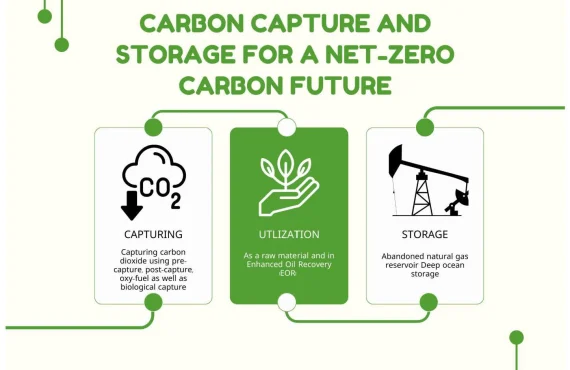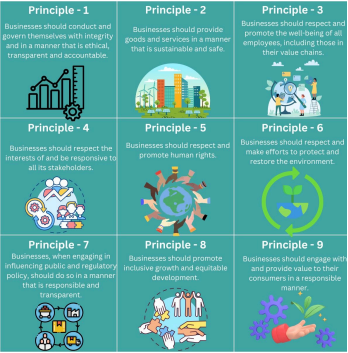Top 3 Competitive Advantages of Investing in ESG Capacity Building for Your Workforce
Environmental, Social, and Governance (ESG) capacity building – training employees in corporate sustainability practices – is no longer a “nice-to-have” but a strategic necessity. In India’s fast-evolving business landscape, companies face rising stakeholder expectations and new regulations (such as SEBI’s ESG disclosure norms). Studies show that a solid ESG program yields strong ROI and competitive edge. For example, 71% of global C-suite leaders now agree that investing in ESG provides a competitive advantage. Similarly, many Indian CEOs expect ESG investments to deliver significant returns within 5–10 years. By equipping the workforce with ESG knowledge through corporate sustainability training, organizations can realize these returns in the form of enhanced reputation, engaged employees, and resilient operations. The following three advantages illustrate why ESG workforce development is a smart, ROI-driven strategy for Indian companies.
1. Enhanced Brand Reputation and Market Positioning
Investing in ESG training builds brand value and stakeholder trust. Companies that visibly prioritize sustainability win credibility with customers, investors, and regulators. For instance, nearly 82% of consumers in India report that they’ve started shopping more sustainably over the past five years. ESG-savvy companies can capitalize on this trend by meeting customer demand for “green” products and services. Likewise, investors increasingly favor firms with strong ESG credentials: the majority of corporate leaders (globally) view ESG as a source of competitive advantage. In practice, building an ESG-aware workforce leads to tangible reputational gains. A study of Green Human Resource Management found that “GHRM strengthens brand recognition and opens new markets,” as employees champion sustainable practices.
Key benefits of ESG-driven positioning include:
- Attracting ESG investors: A Thomson Reuters survey found 71% of leaders agree ESG investing is a competitive advantage, meaning a well-trained ESG team helps win capital from sustainability-focused funds.
- Meeting customer expectations: ~82% of Indian consumers now prefer sustainable options, so firms with strong ESG practices (and trained staff) have an edge in customer loyalty and market share.
- Strengthening brand and license to operate: Companies with comprehensive ESG training often report higher brand equity and better stakeholder relations. For example, firms with mature sustainability cultures achieve better financial results by aligning products with market values.
By integrating ESG into corporate strategy and demonstrating commitment through employee training, companies differentiate themselves. This strategic advantage of ESG not only improves market positioning but also translates into higher sales and investor interest – a clear ROI from workforce sustainability programs.
2. Attracting and Retaining Top Talent with Sustainable Culture
An ESG-focused workforce is a magnet for motivated talent. Today’s professionals – especially Millennials and Gen Z – seek purposeful workplaces. Indian surveys confirm this: a Great Place to Work India report found Gen Z employees are far more satisfied in socially conscious companies – 91% of Gen Z employees reported contentment with facilities in “socially conscious workplaces,” versus much lower satisfaction elsewhere. In short, companies that embed ESG into their culture through sustainability leadership training create an environment where employees thrive.
Workforce development in ESG yields several HR benefits:
- Higher employee engagement: Structured ESG training aligns staff with the company’s mission. Research shows investing in ESG training “boosts organizational competitiveness [and] fosters employee engagement”. When employees understand sustainability goals and see management commitment, morale and innovation rise.
- Improved productivity and retention: Workers want to work for responsible employers. “Employees are more likely to stay longer and be more productive when aligned with green initiatives,” notes a study on Green HRM. Lower attrition saves hiring costs and preserves institutional knowledge, directly enhancing ROI on HR investments.
- Talent attraction and employer branding: Prospective hires now expect corporate sustainability training as a benefit. A strong ESG reputation – supported by employee programs – helps recruit skilled graduates and specialists who value ethical practices.
By building an ESG-savvy workforce, firms cultivate sustainability leadership internally. Training programs (from boardroom to shop-floor) empower staff to launch green projects, contribute ideas, and “own” the company’s ESG goals. This creates a virtuous cycle: motivated employees improve ESG performance, which in turn further boosts employee satisfaction – amplifying the business benefits of ESG.
3. Improved Risk Management, Operational Efficiency and ROI
ESG capacity building strengthens the company’s backbone. Trained employees can identify and mitigate risks (regulatory, environmental, social) before they become costly problems. For example, a prepared workforce is better able to respond to tightening regulations: SEBI now requires the top 1,000 listed Indian companies to disclose ESG metrics (Business Responsibility & Sustainability Reports). Companies with well-trained teams are far ahead in compliance, avoiding fines or reputational damage. An Institute of Cost Accountants survey found that regulatory compliance is the top reason Indian firms adopt ESG – ahead of investor pressure and competitive advantage. In practice, ESG training directly cuts costs and improves margins: transitioning to paperless processes and sustainable operations “reduces utility and material costs,” while greener talent practices lower recruitment expenses.
Key operational and financial gains include:
- Cost savings: Sustainable practices learned through training (e.g. energy efficiency, waste reduction) directly trim operating costs. Studies report that collectively, such initiatives “enhance profitability” by saving resources and improving efficiency.
- Regulatory readiness: Trained employees ensure the organization keeps pace with evolving ESG standards. This proactive stance avoids penalties and can even yield tax or subsidy benefits for environmental compliance.
- Measurable ROI: Indian businesses recognize ESG’s financial impact. KPMG’s 2024 CEO Outlook notes many Indian CEOs “expect significant returns” on ESG investments within 5–10 years. In effect, every rupee spent on ESG training can unlock multiple rupees in revenue growth, cost avoidance, and risk reduction over time.
- Long-term value creation: Holistic ESG programs – supported by employee training – align corporate goals with stakeholder values. This drives sustained performance and “ensures long-term value creation”, rather than short-term gain.
In sum, the ROI of ESG investments is increasingly clear. Efficient resource use, compliance avoidance of penalties, and access to green financing all boost the bottom line. Companies with ESG-trained teams are better able to innovate (for example, developing new sustainable products) and secure their supply chains against environmental/social disruptions. These benefits combine to give ESG-capable firms a tangible edge in cost competitiveness and risk-adjusted returns.
Case Study: ESG Training Success at SG Analytics
A practical example illustrates these advantages. SG Analytics – an Indian business research firm – partnered with a microlearning platform to upskill its employees in ESG principles. The results were dramatic:
- 75% knowledge retention: Employees retained three-quarters of the ESG training content, a clear sign of effective learning.
- 67% surge in certified learners: The number of staff completing ESG certification exams jumped by two-thirds after the program.
- 20% reduction in training costs: By using AI-driven modules, SG Analytics cut its content creation time and training expenses by about one-fifth.
These outcomes highlight the business impact of ESG capacity building. The increased retention and completion rates meant employees were truly internalizing ESG frameworks – translating into smarter, sustainability-minded decision-making. Meanwhile, the cost savings on training itself provided a quick ROI. This case underlines that smart ESG workforce development delivers measurable returns: higher competency, greater certification levels, and lower costs.
Conclusion: Prioritize ESG Training as a Strategic Investment
The evidence is unequivocal: investing in ESG capacity building pays dividends. By focusing on workforce development in sustainability, Indian companies achieve stronger brand positioning, a more engaged and loyal workforce, and robust financial results. These business benefits of ESG are now well documented – from global leadership surveys to Indian CEO outlooks. For decision-makers and CXOs, the message is clear: ESG training is not an expense, but a strategic investment.
As ESG continues to shape global markets and India’s regulatory landscape, companies with trained, sustainability-minded teams will outpace their peers. Corporate sustainability training builds the leadership and culture needed for long-term success. By making ESG workforce development a priority, businesses can unlock new opportunities and secure a competitive advantage – delivering strong ROI while contributing to a sustainable future. In today’s world, the most forward-thinking CXOs treat ESG training as central to strategy. The time to act is now: embedding sustainability leadership into your workforce will not only meet stakeholder expectations but also drive growth and resilience for years to come.





























